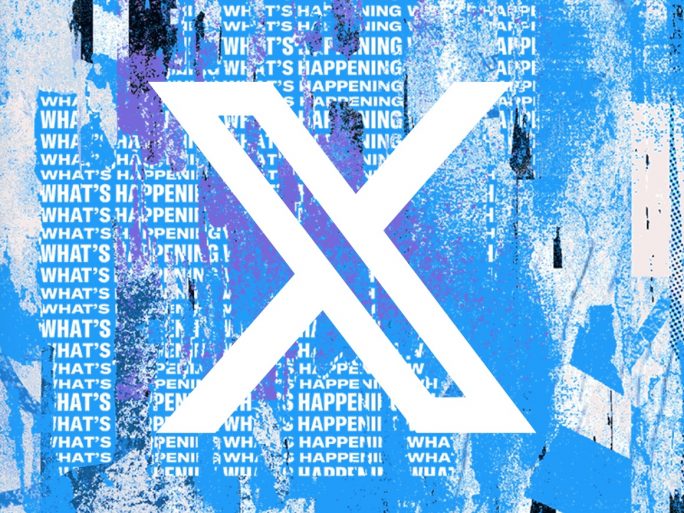EU Tells Tech To Resist Russian Misinformation, With Twitter Singled Out

EU official warns Elon Musk that Twitter cannot avoid its responsibilities, after it is listed as worse for spreading Russian disinformation
Elon Musk’s X (formerly Twitter) has been singled out by a senior European official seeking to counter Russian disinformation.
European Commission Vice President Vera Jourova, who is responsible for the implementation of the new anti-disinformation code under the Digital Services Act (DSA), on Tuesday urged big name tech platforms to do more to combat Russian disinformation campaigns ahead of elections in Europe.
Jourova however specifically listed Twitter as being the largest spreader of Russian lies and propaganda, out of all large social media platforms. Facebook was the second worst offender.
![]()
Russian disinformation
Concerns about Russian disinformation have increased in recent months ahead of parliamentary elections in Slovakia on 30 September and Poland next month, as well as European Parliament elections next year.
A number of tech giant and other online platforms have submitted data on their activity in the last six months to fight fake news as part of the EU code of practice on disinformation.
“This is the first time platforms report with such extensive data under anti #disinformation Code,” tweeted Jourova. “Disinfo remains a weapon in Russia’s war, undermining our #democracy.”
This is the 1⃣st time platforms report with such extensive data under anti #disinformation Code.
We must understand how it works & act, given increasing digitalisation.
Disinfo remains a weapon in 🇷🇺’s war, undermining our #democracy.
Upcoming #elections will be a stress test. pic.twitter.com/BARC0qFsgu
— Věra Jourová (@VeraJourova) September 26, 2023
Jourova noted the EU Code has now 44 signatories, including major online platforms such as Facebook, Google, YouTube, TikTok or LinkedIn, but it also includes advertising industry and civil society.
Jourova noted that this the first time that platform signatories have reported such extensive data – covering 6 months – about their efforts to fight online disinformation.
“I am very much aware of the work that the signatories have been doing to implement the Code and I appreciate their efforts,” said Jourova. “I know it requires efforts from the signatories. We have to work together to make the Code focused on the most important elements and ensure consistency between different work streams.”
Jourova said that one of her main messages to the signatories is to be aware of the context. Russian war against Ukraine, and the upcoming EU elections next year, are particularly relevant, because the risk of disinformation is particulary serious she said.
The Russian state has engaged in the war of ideas to pollute our information space with half-truth and lies to create a false image that democracy is no better than autocracy, she warned.
Of course, the Digital Services Act is now binding, and all the Very Large Online Platforms have to comply with it.
Twitter named
And then Jourova directly named X, after its owner Elon Musk withdrew from the EU’s voluntary code of practice in May.
Industry commissioner Thierry Breton however warned at the time that Twitter’s legal obligations on disinformation remained.
Under the EU’s Digital Services Act (DSA), Twitter counts as a “very large online platform”, subject to the stricter content rules.
That withdrawal came the European Commission in February slammed Twitter’s compliance with the code, saying its efforts were falling short of those of its peers.
The EU had previously warned owner Elon Musk his platform could face a complete ban in Europe or fines running up to 6 percent of its global revenue if it does not comply with the laws.
In June Twitter reportedly agreed to comply with the EU disinformation rules.
But this week Jourova said that X “is the platform with the largest ratio of mis/disinformation posts.”
Russian actions
According to Jourova, the pilot code also showed that disinformation actors were found to have significantly more followers than their non-disinformation counterparts and tend to have joined the platform more recently than non-disinformation users.
Jourova said the EU had asked tech platforms to monitor specifically disinformation about the Russian war in Ukraine. And she cited the following examples.
Google reported that, between January and April 2023, YouTube had terminated more than 400 channels involved in coordinated influence operations linked to the Russian-state sponsored Internet Research Agency (IRA).
Google also has removed ads from almost 300 sites linked to state-funded propaganda sites.
Meta reported expanding its fact-checking partnerships to 26 partners covering 22 languages in the EU, which now includes also Czech and Slovak.
TikTok’s fact-checking efforts cover Russian, Ukrainian, Belarusian and 17 European languages, including through a new partnership with Reuters. In this context, 832 videos related to the war have been fact-checked, of which 211 have been removed.
Microsoft highlights that Bing Search has either promoted information or downgraded questionable information in relation to almost 800 thousand search queries related to the crisis.
“While it is good to have this specific insight into disinformation around the war, I expect the platforms to do more efforts with better results. Russian propaganda and disinformation is still very present on online platforms,” Jourova warned. “This is not business as usual. The Kremlin fights with bombs in Ukraine, but with words everywhere else, including in the EU.”
Jourova welcomed that major platforms started to address the risks of generative AI by starting to put in place safeguards to inform users about the synthetic origin of content posted online.
And she wants the platforms to focus their work on consistent moderation and investment in fact-checking; and finally ensuring access to data for researchers.